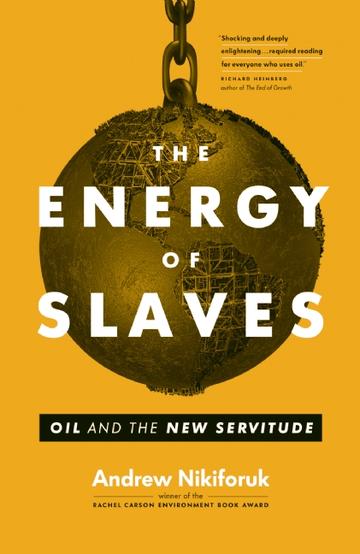About BC Books Online
BC Books Online was created for anyone interested in BC-published books, and with librarians especially in mind. We'd like to make it easy for library staff to learn about books from BC publishers - both new releases and backlist titles - so you can inform your patrons and keep your collections up to date.
Our site features print books and ebooks - both new releases and backlist titles - all of which are available to order through regular trade channels. Browse our subject categories to find books of interest or create and export lists by category to cross-reference with your library's current collection.
A quick tip: When reviewing the "Browse by Category" listings, please note that these are based on standardized BISAC Subject Codes supplied by the books' publishers. You will find additional selections, grouped by theme or region, in our "BC Reading Lists."
"A startling critique that should rouse us from our pipe dream of endless plenty." -- Ronald Wright, author of A Short History of Progress
A radical analysis of our master-and-slave relationship to energy and a call for change.
Ancient civilizations routinely relied on shackled human muscle. It took the energy of slaves to plant crops, clothe emperors, and build cities. In the early nineteenth century, the slave trade became one of the most profitable enterprises on the planet, and slaveholders viewed religious critics as hostilely as oil companies now regard environmentalists. Yet when the abolition movement finally triumphed in the 1850s, it had an invisible ally: coal and oil. As the world's most portable and versatile workers, fossil fuels dramatically replenished slavery's ranks with combustion engines and other labour-saving tools. Since then, oil has transformed politics, economics, science, agriculture, gender, and even our concept of happiness. But as Andrew Nikiforuk argues in this provocative new book, we still behave like slaveholders in the way we use energy, and that urgently needs to change.
Many North Americans and Europeans today enjoy lifestyles as extravagant as those of Caribbean plantation owners. Like slaveholders, we feel entitled to surplus energy and rationalize inequality, even barbarity, to get it. But endless growth is an illusion, and now that half of the world's oil has been burned, our energy slaves are becoming more expensive by the day. What we need, Nikiforuk argues, is a radical new emancipation movement.
"Our overwhelming societal dependence on oil is usually discussed in economic terms. This book looks at our Promethean petro-prowess through an ethical lens, and the result is both shocking and deeply enlightening. This is required reading for everyone who uses oil. (Do you know anyone who doesn't?)" -- Richard Heinberg, author of The End of Growth
"In this cogently argued book, Andrew Nikiforuk deploys a powerful metaphor. Oil dependency, he writes, is a modern form of slavery-and it's time for a global abolition movement." -- Taras Grescoe, author of Straphanger and Bottomfeeder
Published in partnership with the David Suzuki Foundation



